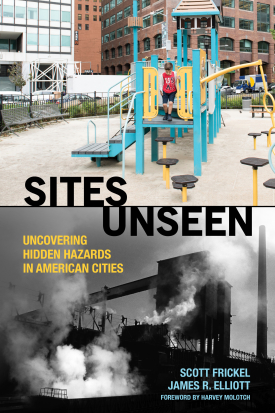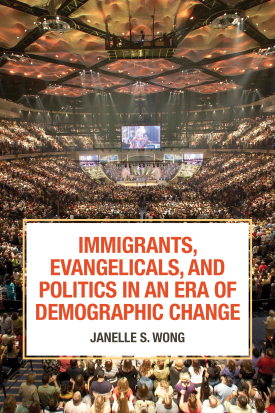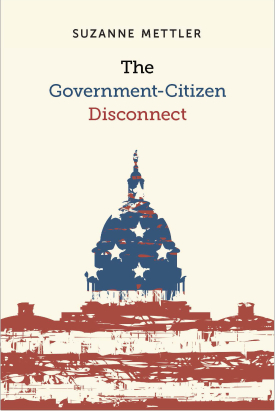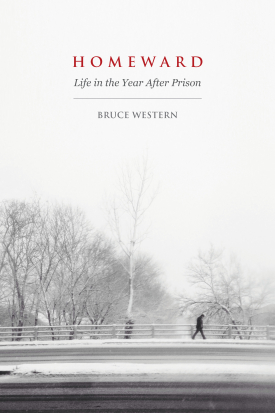
Sites Unseen
About This Book
Winner of the 2020 Robert E. Park Award for Best Book from the Community and Urban Sociology Section of the American Sociological Association
A Volume in the American Sociological Association’s Rose Series in Sociology
“Sites Unseen is perhaps the most important contribution made in this century to our understanding of the distribution of environmental hazards in U.S. urban areas. Scott Frickel and James R. Elliott, two masterful sociologists, present their innovative and insightful research in this accessible but deeply scholarly work about how the history of cities affects the well-being of contemporary urban residents. This is a seminal work that is likely to spawn a wide variety of new research as well as aid and encourage social and environmental activists.”
—RICHARD YORK, professor of sociology and director and professor of environmental studies, University of Oregon
“This is a work of exceptional quality and profundity, the result of painstaking and systematic investigation of the largely hidden yet massive and ‘relentless accumulation’ of industrial hazards that exists throughout urban America. Scott Frickel and James R. Elliott present a twenty-first century theory and method of human ecology that requires us to expand our sensory capacities, and they give us a bonus: an innovative and empowering DIY Guide for those who seek to apply these tools to their own cities and neighborhoods. Sites Unseen will change forever the way we think about cities. I fervently hope that it also changes the way we live in and (re)make them.”
—DAVID N. PELLOW, Dehlsen Chair and professor of environmental studies, University of California, Santa Barbara
“Sites Unseen is an innovative and important book. Scott Frickel and James R. Elliott document in laser-like fashion how the poor and people of color are disproportionately burdened by exposure to a heretofore largely invisible landscape of industrial-era environmental hazards in American cities. By adroitly exposing the hazards and demonstrating how our regulatory apparatus seems capable of only handling the most extreme risks, Frickel and Elliott’s creative use of public data, methods, and findings lay the foundation for renewed research interest in environmental sociology and geography.”
—JAMES H. JOHNSON JR., William R. Kenan Jr. Distinguished Professor of Strategy and Entrepreneurship and director of the Urban Investment Strategies Center, University of North Carolina Kenan-Flager Business School
From a dive bar in New Orleans to a leafy residential street in Minneapolis, many establishments and homes in cities across the nation share a troubling and largely invisible past: they were once sites of industrial manufacturers, such as plastics factories or machine shops, that likely left behind carcinogens and other hazardous industrial byproducts. In Sites Unseen, sociologists Scott Frickel and James R. Elliott uncover the hidden histories of these sites to show how they are regularly produced and reincorporated into urban landscapes with limited or no regulatory oversight. By revealing this legacy of our industrial past, Sites Unseen spotlights how city-making has become an ongoing process of social and environmental transformation and risk containment.
To demonstrate these dynamics, Frickel and Elliott investigate four very different cities—New Orleans, Minneapolis, Philadelphia, and Portland, Oregon. Using original data assembled and mapped for thousands of former manufacturers’ locations dating back to the 1950s, they find that more than 90 percent of such sites have now been converted to urban amenities such as parks, homes, and storefronts with almost no environmental review. And because manufacturers tend to open plants on new, non-industrial lots rather than on lots previously occupied by other manufacturers, associated hazards continue to spread relatively unabated. As they do, residential turnover driven by gentrification and the rising costs of urban living further obscure these sites from residents and regulatory agencies alike.
Frickel and Elliott show that these hidden processes have serious consequences for city-dwellers. While minority and working class neighborhoods are still more likely to attract hazardous manufacturers, rapid turnover in cities means that whites and middle-income groups also face increased risk. Since government agencies prioritize managing polluted sites that are highly visible or politically expedient, many former manufacturing sites that now have other uses remain invisible. To address these oversights, the authors advocate creating new municipal databases that identify previously undocumented manufacturing sites as potential environmental hazards. They also suggest that legislation limiting urban sprawl might reduce the flow of hazardous materials beyond certain boundaries.
A wide-ranging synthesis of urban and environmental scholarship, Sites Unseen shows that creating sustainable cities requires deep engagement with industrial history as well as with the social and regulatory processes that continue to remake urban areas through time.
SCOTT FRICKEL is professor of sociology and environment and society at Brown University.
JAMES R. ELLIOTT is professor of sociology at Rice University.



